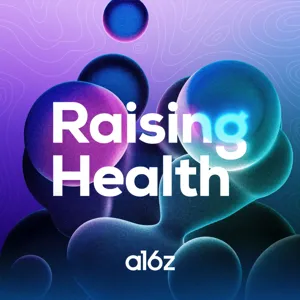Podcast Summary
Shift in acceptance of consumers' role in healthcare: The acceptance of consumers taking a more active role in their health is a game-changer, and entrepreneurs who can capitalize on this trend will be well-positioned for success in the rapidly changing healthcare landscape.
Key takeaway from the discussion with Anne Wojcicki, co-founder and CEO of 23andMe, is the significant shift in acceptance and recognition of consumers' role in healthcare. When 23andMe first started, there was immense controversy surrounding the idea of consumers having access to their raw genome data. However, Anne recalled a pivotal moment where the tide began to change, and people started embracing the idea of consumers taking a more active role in their health. Today, Anne advises entrepreneurs to seize the opportunity and build in this rapidly changing landscape. With the recent shift towards virtual care and telemedicine, the next decade could bring significant growth in this sector. The acceptance of consumers' role in healthcare is a game-changer, and entrepreneurs who can capitalize on this trend will be well-positioned for success.
Empowering Consumers in Healthcare: Challenges and Solutions: Consumers need better access to their health data for adequate care. A cultural shift and potential financial incentives for healthcare providers may be necessary to prioritize consumer data access.
The role of consumers in healthcare is increasingly recognized and accepted, but there are still significant challenges to be addressed, particularly in terms of access to medical records and data transparency. Consumers are becoming more empowered, but they often don't know how to effectively mobilize and demand change. The current healthcare system prioritizes business-to-business relationships over consumer needs, making it difficult for individuals to assert their rights to their own data and medical records. The lack of access to this information can lead to inadequate care and even life-threatening situations. To create a paradise in healthcare, there needs to be a more effective way for consumers to demand and access their health information, and for providers to prioritize this need. This may require a cultural shift and potential financial incentives for healthcare providers to prioritize consumer data access. Ultimately, it's crucial that consumers become more informed and empowered to demand better healthcare services and data access.
From episodic care to continuous care through tech and prevention: The future of healthcare relies on prevention, but the financial incentive structure hinders progress. Tech, particularly mobile phones, can facilitate behavior change and preventative healthcare, but new business models and partnerships are needed to shift from episodic care to continuous care.
The future of healthcare lies in prevention, and genetics plays a crucial role in understanding inherent risks. However, the current healthcare system is not geared towards prevention, and doctors are often not trained to help patients modify their behavior. The potential of technology, particularly mobile phones, in facilitating behavior change and preventative healthcare is vast. Yet, the main obstacle to realizing this vision is the financial incentive structure in healthcare, which prioritizes short-term returns over long-term prevention. To bridge this gap, new business models and partnerships between tech companies, healthcare providers, and insurers are necessary. Only then can we shift from episodic care to continuous care and make prevention an integral part of the healthcare ecosystem.
Addressing healthcare's short-term focus and misaligned incentives: Single payer or integrated healthcare models could incentivize prevention and long-term health, but consumer acceptance and affordability are challenges. Innovations like AI, chatbots, and direct-to-consumer companies aim to engage consumers, but scalability and effective challenge to financial incentives are key.
The current healthcare system lacks incentives for prevention and keeping people healthier due to its short-term focus and misaligned incentives. This issue is particularly prominent in the insurance industry. To address this, systems like single payer or integrated healthcare models, where entities take on risk for extended periods, are necessary. However, the question of whether consumers will pay for such systems remains. Innovations like AI, chatbots, and direct-to-consumer companies aim to engage consumers, but the challenge lies in creating scalable means to do so. Ultimately, the solution may involve empowering patients with knowledge, incentives, and resources to make informed decisions about their health. The success of this approach depends on whether innovators can effectively challenge the existing financial incentives and create sustainable, long-term solutions.
Integrating personal genomics into healthcare delivery: Creating a system that provides value to individuals and society requires long-term planning and alignment of financial incentives. Addressing affordability and accessibility for younger individuals is crucial, and integrating genomics within the existing healthcare ecosystem might be the ideal approach.
Integrating personal genomics into healthcare delivery is a complex issue with significant potential benefits, but also challenges. The long-term planning and alignment of financial incentives are crucial for creating a system that can provide value to individuals and society as a whole. While there are arguments for building a genomics-driven medicine system outside of the existing healthcare ecosystem, the convergence of various factors might make this the ideal time to try to integrate it within the current system. However, addressing the issue of affordability and accessibility for younger individuals who may not see immediate benefits from genomics testing is essential. Ultimately, the goal is to create a system where every person becomes personalized to their unique genetic makeup, just like how Netflix personalizes content for each user. But, similar to Netflix, we first need to gather and analyze the data to prove the benefits and create a sustainable financial model.
Revolutionizing medical research with technology: Technology platforms like 23andMe enable faster, cheaper, and larger population studies for effective disease diagnosis, prediction, and prevention. Data collected from everyday life can influence drug selection, clinical trial design, and prescription practices.
While we have made significant strides in medical research, there is a pressing need to conduct studies faster, cheaper, and on larger populations to effectively diagnose, predict, and prevent diseases. The use of platforms like 23andMe for patient communication is a game-changer in this regard. Prevention plays a crucial role in various disease areas, and every day counts towards our overall health. The phone is a powerful tool for collecting data and turning everyday life into a clinical trial. Furthermore, the design of new therapeutics can also be influenced by this data-driven approach, from drug selection to clinical trial design and prescription practices. The current system is not optimally set up for these long-term studies, but the potential benefits are immense.
Genetic Information in Drug Discovery: A Promising Future: While the potential for genetic information in drug discovery is substantial, it will take time for its full impact to be realized and documented.
The use of genetic information in developing therapies is twice as likely to be successful, making it a significant step towards more effective and efficient drug discovery. However, despite this potential, the process still takes a long time. Companies like 23andMe, with large customer databases, are just beginning to scratch the surface of what can be discovered and how it can be applied to drug development. The future of drug discovery is expected to bring new opportunities for understanding gene function and potential treatments through small molecules, antibodies, or gene therapies. Looking back over the last decade, the killer application for consumer genomics has been ancestry testing, which was not initially anticipated. Overall, the key takeaway is that while the potential for genetic information in drug discovery is substantial, it will take time for its full impact to be realized and documented.
Discovering hidden roots and connecting to heritage: Genetic testing can provide a powerful sense of identity and belonging for some individuals, revealing hidden ancestry and even leading to life-changing decisions.
The discovery of personal genetic ancestry through companies like 23andMe can have a profound impact on individuals' lives, revealing hidden roots and connecting people to their heritage and even long-lost family members. The initial success of the company was met with high expectations, but when sales slowed down, the founders realized that not everyone shared their fascination with genetic ancestry. The unexpected discovery of the significance of this information led to a shift in perspective, as the team realized the potential for personal genetic testing to provide a sense of identity and belonging for some people. The story of a woman who, upon learning she was part of the Arctic Inuit community, quit her job and moved to learn about her newfound heritage, is a powerful example of this transformative impact. The team's commitment to scientific accuracy became even more crucial as they recognized the importance of delivering accurate and meaningful results to their customers.
A customer's valuable experience with 23andMe: 23andMe values scientific leadership and provides customers with meaningful experiences and detailed genetic information, even facing regulatory challenges
At 23andMe, they place a high value on scientific leadership and the unique, meaningful experiences their product provides for their customers. Anne Wojcicki, the CEO, shared a story about a customer on hospice who received her genetic information before she passed away, making the experience incredibly valuable for her. The company's core value of leading with science drives them to provide customers with detailed information about their background and lineage. Despite regulatory challenges, such as the FDA warning letter they received, the team remained committed to their mission and eventually found a way to continue providing their product to customers. The story of 23andMe's comeback after the warning letter is a testament to their resilience and dedication to their customers.
Navigating regulatory challenges: Listen, adapt, and communicate: Being persistent, adaptable, and communicative are essential when dealing with regulatory agencies. Seek advice, have open dialogues, and generate necessary data to prove product safety and efficacy.
Effective communication and a willingness to adapt are crucial when navigating regulatory challenges. The speaker's experience with the FDA involved initially misunderstanding the agency's requirements and receiving harsh feedback. However, they recognized the importance of taking the FDA's feedback as fact and adjusting their approach. This included seeking advice, having open dialogues, and generating the necessary data to prove the product's safety and efficacy. The speaker's determination and ability to listen and respond helped them overcome the challenges and ultimately gain FDA approval. Cash flow was also a critical factor in their success. Overall, the story highlights the importance of being persistent, adaptable, and communicative when dealing with regulatory agencies.
The importance of listening and following instructions: Recognize when to argue and when to listen, especially in entrepreneurial settings. Being adaptable and open to new perspectives can lead to success.
Listening and following instructions, even when it's difficult or against your initial judgment, can be crucial for success. WJ's story of experiencing a near-death experience during a rock climbing expedition and the subsequent sale of his company serves as a powerful reminder of this lesson. It's essential to recognize when to argue and when to listen, especially in entrepreneurial settings. Investors and founders may enjoy debating, but there comes a time when it's necessary to put aside disagreements and follow the instructions for the greater good. This anecdote highlights the importance of being adaptable and open to new perspectives, even when they challenge our own beliefs. Ultimately, the ability to listen and respond effectively can be the difference between failure and success.






